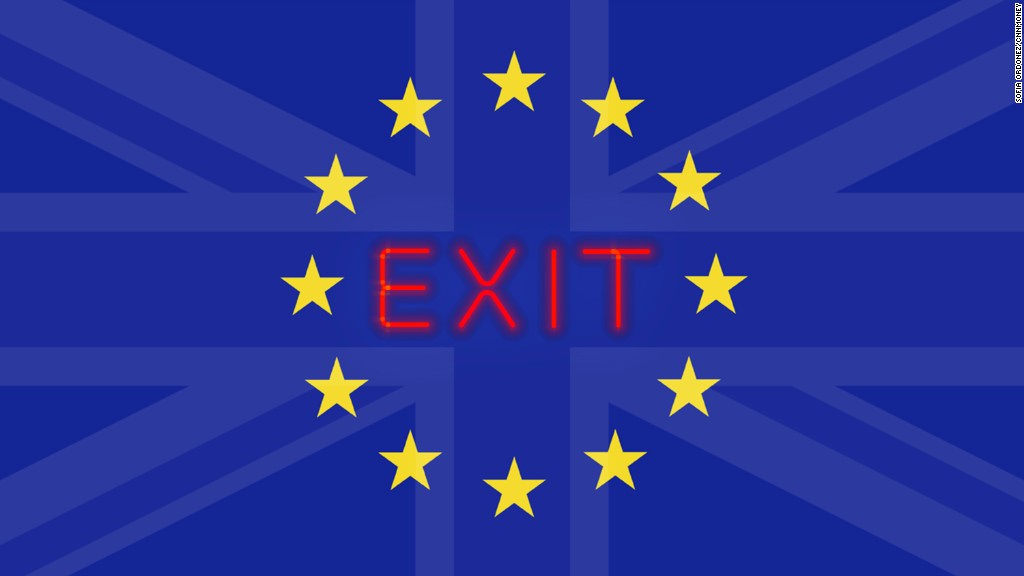
British business leaders may put on a brave face in public, but they're seriously worried about Brexit.
A new survey shows 76% of U.K. CEOs have considered moving their company headquarters or parts of their business out of the country in the wake of the Brexit vote in June.
"It would be surprising and almost negligent of CEOs to not be making contingency plans or evaluating options," said Simon Collins, U.K. chairman at KPMG, which conducted the survey.
"Moving headquarters abroad is radical and hits the headlines but businesses could start shifting operations abroad with little public attention," he added.
The British government has yet to come up with a detailed plan for extracting the country from the European Union, its biggest trading partner. The terms of the divorce could have a big knock-on effects on jobs, trade, investment and the overall economy.
"Policy makers should be really concerned about a leaching of British business abroad and should engage with business early to understand what assurances they can offer and closely monitor any shifts overseas," Collins said.
KPMG's survey of 100 large British companies found that most executives feel confident about the economy and the prospects for their owns businesses over the next few years. Yet over half of respondents say the U.K.'s ability to do business will be hindered by leaving the EU, and that's why they're sketching out options for Brexit.
Related: $1.3 trillion at stake in Brexit breakup
That finding was reinforced by a second survey, conducted by PwC and the U.K.'s leading business lobby group, the Confederation of British Industry. It showed that 53% of financial services firms believe the vote to leave the EU is bad for their organization, while just 12% believe it's good.
The PwC survey of 115 firms in the British financial services sector -- which supports about 2 million British jobs -- found that overall business optimism fell for the third consecutive quarter. That's the longest period of decline since the depths of the global financial crisis.
Official data shows nearly 5,500 British firms rely on financial "passports" to do business across the EU. If they lose that automatic right to access of EU markets, the disruption to their business could be significant.
"It's still early days, and there is no real clarity on what future [Brexit] agreements will be reached. Consequently, many of our clients are considering their options, including potential restructuring and relocation of their businesses," said Andrew Kail, U.K. financial services leader at PwC.
